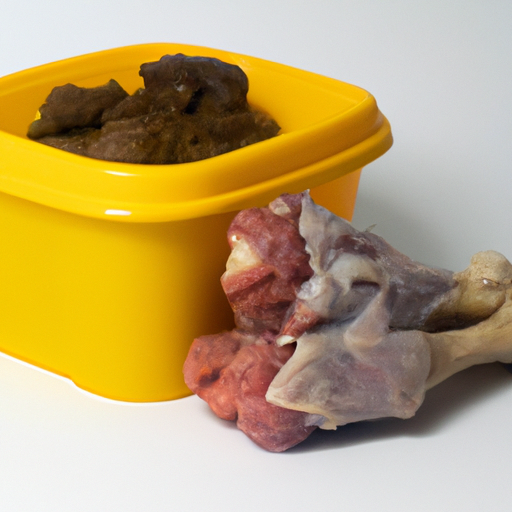“`markdown
What Meats Can Dogs Eat Raw?
A. Introduction
As a caregiver, it’s only natural that you want the best for your furry family member. You’ve probably wondered if you should jump onto the raw food diet trend for dogs. After all, their ancestors thrived on raw meats in the wild, didn’t they? Well, the answer isn’t as straightforward as it might seem.
B. The Pros and Cons of a Raw Food Diet for Dogs
Before we dive into the types of meats that dogs can eat raw, it’s essential to understand the benefits and risks of a raw food diet.
Pros
- Potential for a shinier coat.
- Healthier skin.
- Higher energy levels.
Cons
- Risk of bacterial infections.
- Potential for an unbalanced diet.
- Choking hazards.
C. Safe Raw Meats for Dogs
Now, let’s delve into the different types of raw meats that are safe for dogs to consume. Remember, moderation and balance are key.
- Beef:
- Rich in protein and essential amino acids.
- Contains healthy fats.
- Chicken:
- An excellent source of protein.
- High in niacin and vitamin B6.
- Lamb:
- High in essential omega-3 fatty acids.
- Good source of dietary fats.
| Meat Type | Nutrients |
|---|---|
| Beef | Protein, Amino Acids, Healthy Fats |
| Chicken | Protein, Niacin, Vitamin B6 |
| Lamb | Omega-3 Fatty Acids, Dietary Fats |
D. The Role of a Balanced Diet
Feeding your dog raw meat alone isn’t enough. Dogs need a balanced diet to ensure they’re getting all the necessary nutrients they need. Alongside raw meats, consider incorporating:
- Bone meal: For calcium and phosphorus.
- Vegetables: Such as sweet potatoes, for their fiber content.
- Fruits: Like apples (minus the seeds) for their vitamins.
E. Frequently Asked Questions
1. Can my dog eat raw pork?
While pork isn’t toxic to dogs, it’s recommended to cook it first to kill any potential harmful bacteria.
2. Is it okay to mix raw meat with dry dog food?
Yes, but it’s essential to ensure the meal remains balanced in terms of nutritional content.
3. Can all dog breeds eat raw meat?
While most dogs can eat raw meat, it’s always best to consult with a vet first, as some breeds may have specific dietary needs.
Remember, you’re not just feeding a dog; you’re nourishing a life-long companion. Happy feeding!
“`



